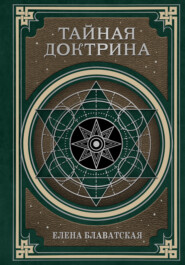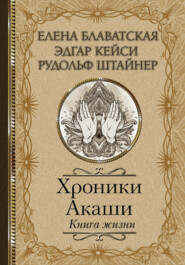По всем вопросам обращайтесь на: info@litportal.ru
(©) 2003-2024.
✖
From the Caves and Jungles of Hindostan
Настройки чтения
Размер шрифта
Высота строк
Поля
The month when the waters of the Ganges are most salutary, falls, according to the Brahmanical computation, between March 12th and April 10th, and is called Chaitra. The worst of it is that the waters are at their best only at the first moment of a certain propitious hour, indicated by the Brahmans, and which sometimes happens to be midnight. You can fancy what it must be when this moment comes, in the midst of a crowd which exceeds two millions. In 1819 more than four hundred people were crushed to death. But even after the new stairs were constructed, the goddess Ganga has carried away on her virgin bosom many a disfigured corpse of her worshipers. Nobody pitied the drowned, on the contrary, they were envied. Whoever happens to be killed during this purification by bathing, is sure to go straight to Swarga (heaven). In 1760, the two rival brotherhoods of Sannyasis and Bairagis had a regular battle amongst them on the sacred day of Purbi, the last day of the religious fair. The Bairagis were conquered, and there were eighteen thousand people slaughtered.
"And in 1796," proudly narrated our warlike friend the Akali, "the pilgrims from Punjab, all of them Sikhs, desiring to punish the insolence of the Hossains, killed here about five hundred of these heathens. My own grandfather took part in the fight!"
Later on we verified this in the Gazetteer of India, and the "God's warrior" was cleared of every suspicion of exaggeration and boasting.
In 1879, however, no one was drowned, or crushed to death, but a dreadful epidemic of cholera broke out. We were disgusted at this impediment; but had to keep at a distance in spite of our impatience to see Hardwar. And unable to behold distant summits of old Himavat ourselves, we had in the meanwhile to be contented with what we could hear about him from other people.
So we talked long after our breakfast under the cave vault was finished. But our talk was not so gay as it might have been, because we had to part with Ram-Runjit-Das, who was going to Bombay. The worthy Sikh shook hands with us in the European way, and then raising his right hand gave us his blessing, after the fashion of all the followers of Nanaka. But when he approached the Takur to take leave of him, his countenance suddenly changed. This change was so evident that we all noted it. The Takur was sitting on the ground leaning on a saddle, which served him as a cushion. The Akali did not attempt either to give him his blessing or to shake hands with him. The proud expression of his face also changed, and showed confusion and anxious humility instead of the usual self-respect and self-sufficiency. The brave Sikh knelt down before the Takur, and instead of the ordinary "Namaste!"—"Salutation to you," whispered reverently, as if addressing the Guru of the Golden Lake: "I am your servant, Sadhu-Sahib! give me your blessing!"
Without any apparent reason or cause, we all felt self-conscious and ill at ease, as if guilty of some indiscretion. But the face of the mysterious Rajput remained as calm and as dispassionate as ever. He was looking at the river before this scene took place, and slowly moved his eyes to the Akali, who lay prostrated before him. Then he touched the head of the Sikh with his index finger, and rose with the remark that we also had better start at once, because it was getting late.
We drove in our carriage, moving very slowly because of the deep sand which covers all this locality, and the Takur followed us on horseback all the way. He told us the epic legends of Hardwar and Rajistan, of the great deeds of the Hari-Kulas, the heroic princes of the solar race. Hari means sun, and Kula family. Some of the Rajput princes belong to this family, and the Maharanas of Oodeypur are especially proud of their astronomical origin.
The name of Hari-Kula gives to some Orientalists ground to suppose that a member of this family emigrated to Egypt in the remote epoch of the first Pharaonic dynasties, and that the ancient Greeks, borrowing the name as well as the traditions, thus formed their legends about the mythological Hercules. It is believed that the ancient Egyptians adored the sphinx under the name of Hari-Mukh, or the "sun on the horizon." On the mountain chain which fringes Kashmir on the north, thirteen thousand feet above the sea, there is a huge summit, which is exactly like a head, and which bears the name of Harimukh. This name is also met with in the most ancient of the Puranas. Besides, popular tradition considers this Himalayan stone head to be the image of the setting sun.
Is it possible, then, that all these coincidences are only accidental? And why is it that the Orientalists will not give it more serious attention? It seems to me that this is a rich soil for future research, and that it is no more to be explained by mere chance than the fact that both Egypt and India held the cow sacred, and that the ancient Egyptians had the same religious horror of killing certain animals, as the modern Hindus.
An Isle of Mystery
When evening began to draw on, we were driving beneath the trees of a wild jungle; arriving soon after at a large lake, we left the carriages. The shores were overgrown with reeds—not the reeds that answer our European notions, but rather such as Gulliver was likely to meet with in his travels to Brobdingnag. The place was perfectly deserted, but we saw a boat fastened close to the land. We had still about an hour and a half of daylight before us, and so we quietly sat down on some ruins and enjoyed the splendid view, whilst the servants of the Takur transported our bags, boxes and bundles of rugs from the carriages to the ferry boat. Mr. Y– was preparing to paint the picture before us, which indeed was charming.
"Don't be in a hurry to take down this view," said Gulab-Sing. "In half an hour we shall be on the islet, where the view is still lovelier. We may spend there the night and tomorrow morning as well."
"I am afraid it will be too dark in an hour," said Mr. Y–, opening his color box. "And as for tomorrow, we shall probably have to start very early."
"Oh, no! there is not the slightest need to start early. We may even stay here part of the afternoon. From here to the railway station it is only three hours, and the train only leaves for J ubbulpore at eight in the evening. And do you know," added the Takur, smiling in his usual mysterious way, "I am going to treat you to a concert. Tonight you shall be witness of a very interesting natural phenomenon connected with this island."
We all pricked up our ears with curiosity.
"Do you mean that island there? and do you really think we must go?" asked the colonel. "Why should not we spend the night here, where we are so deliciously cool, and where…"
"Where the forest swarms with playful leopards, and the reeds shelter snug family parties of the serpent race, were you going to say, colonel?" interrupted the Babu, with a broad grin. "Don't you admire this merry gathering, for instance? Look at them! There is the father and the mother, uncles, aunts, and children.... I am sure I could point out even a mother-in-law."
Miss X– looked in the direction he indicated and shrieked, till all the echoes of the forest groaned in answer. Not farther than three steps from her there were at least forty grown up serpents and baby snakes. They amused themselves by practising somersaults, coiled up, then straightened again and interlaced their tails, presenting to our dilated eyes a picture of perfect innocence and primitive contentment. Miss X– could not stand it any longer and fled to the carriage, whence she showed us a pale, horrified face. The Takur, who had arranged himself comfortably beside Mr. Y– in order to watch the progress of his paint-ing, left his seat and looked attentively at the dangerous group, quietly smoking his gargari—Rajput narghile—the while.
"If you do not stop screaming you will attract all the wild animals of the forest in another ten minutes," said he. "None of you have anything to fear. If you do not excite an animal he is almost sure to leave you alone, and most probably will run away from you."
With these words he lightly waved his pipe in the direction of the serpentine family-party. A thunderbolt falling in their midst could not have been more effectual. The whole living mass looked stunned for a moment, and then rapidly disappeared among the reeds with loud hissing and rustling.
"Now this is pure mesmerism, I declare," said the colonel, on whom not a gesture of the Takur was lost. "How did you do it, Gulab-Sing? Where did you learn this science?"
"They were simply frightened away by the sudden movement of my chibook, and there was no science and no mesmerism about it. Probably by this fashionable modern word you mean what we Hindus call vashi-karana vidya—that is to say, the science of charming people and animals by the force of will. However, as I have already said, this has nothing to do with what I did."
"But you do not deny, do you, that you have studied this science and possess this gift?"
"Of course I don't. Every Hindu of my sect is bound to study the mysteries of physiology and psychology amongst other secrets left to us by our ancestors. But what of that? I am very much afraid, my dear colonel," said the Takur with a quiet smile, "that you are rather inclined to view the simplest of my acts through a mystical prism. Narayan has been telling you all kinds of things about me behind my back.... Now, is it not so?"
And he looked at Narayan, who sat at his feet, with an indescribable mixture of fondness and reproof. The Dekkan colossus dropped his eyes and remained silent.
"You have guessed rightly," absently answered Mr. Y–, busy over his drawing apparatus. "Narayan sees in you something like his late deity Shiva; something just a little less than Parabrahm. Would you believe it? He seriously assured us—in Nassik it was—that the Raj-Yogis, and amongst them yourself—though I must own I still fail to understand what a Raj-Yogi is, precisely—can force any one to see, not what is before his eyes at the given moment, but what is only in the imagination of the Raj-Yogi. If I remember rightly he called it Maya.... Now, this seemed to me going a little too far!"
"Well! You did not believe, of course, and laughed at Narayan?" asked the Takur, fathoming with his eyes the dark green deeps of the lake.
"Not precisely… Though, I dare say, I did just a little bit," went on Mr. Y–, absently, being fully engrossed by the view, and trying to fix his eyes on the most effective part of it. "I dare say I am too scep-tical on this kind of question."
"And knowing Mr. Y– as I do," said the colonel, I can add, for my part, that even were any of these phenomena to happen to himself personally, he, like Dr. Carpenter, would doubt his own eyes rather than believe."
"What you say is a little bit exaggerated, but there is some truth in it. Maybe I would not trust myself in such an occurrence; and I tell you why. If I saw something that does not exist, or rather exists only for me, logic would interfere. However objective my vision may be, before believing in the materiality of a hallucination, I feel I am bound to doubt my own senses and sanity.... Besides, what bosh all this is! As if I ever will allow myself to believe in the reality of a thing that I alone saw; which belief implies also the admission of somebody else governing and dominating, for the time being, my optical nerves, as well as my brains."
"However, there are any number of people, who do not doubt, because they have had proof that this phenomenon really occurs," remarked the Takur, in a careless tone, which showed he had not the slightest desire to insist upon this topic.
However, this remark only increased Mr. Y–'s excitement.
"No doubt there are!" he exclaimed. "But what does that prove? Besides them, there are equal numbers of people who believe in the materialization of spirits. But do me the kindness of not including me among them!"
"Don't you believe in animal magnetism?"
"To a certain extent, I do. If a person suffering from some contagious illness can influence a person in good health, and make him ill, in his turn, I suppose somebody else's overflow of health can also affect the sick person, and, perhaps cure him. But between physiological contagion and mesmeric influence there is a great gulf, and I don't feel inclined to cross this gulf on the grounds of blind faith. It is perfectly possible that there are instances of thought-transference in cases of somnambulism, epilepsy, trance. I do not positively deny it, though I am very doubtful. Mediums and clairvoyants are a sickly lot, as a rule. But I bet you anything, a healthy man in perfectly normal conditions is not to be influenced by the tricks of mesmerists. I should like to see a magnetizer, or even a Raj-Yogi, inducing me to obey his will."
"Now, my dear fellow, you really ought not to speak so rashly," said the colonel, who, till then, had not taken any part in the discussion.
"Ought I not? Don't take it into your head that it is mere boastfulness on my part. I guarantee failure in my case, simply because every renowned European mesmerist has tried his luck with me, without any result; and that is why I defy the whole lot of them to try again, and feel perfectly safe about it. And why a Hindu Raj-Yogi should succeed where the strongest of European mesmerists failed, I do not quite see...."
Mr. Y– was growing altogether too excited, and the Takur dropped the subject, and talked of something else.
For my part, I also feel inclined to deviate once more from my subject, and give some necessary explanations.
Miss X– excepted, none of our party had ever been numbered amongst the spiritualists, least of all Mr. Y–. We Theosophists did not believe in the playfulness of departed souls, though we admitted the possibility of some mediumistic phenomena, while totally disagreeing with the spiritualists as to the cause and point of view. Refusing to believe in the interference, and even presence of the spirits, in the so-called spiritualistic phenomena, we nevertheless believe in the living spirit of man; we believe in the omnipotence of this spirit, and in its natural, though benumbed capacities. We also believe that, when incarnated, this spirit, this divine spark, may be apparently quenched, if it is not guarded, and if the life the man leads is unfavorable to its expansion, as it generally is; but, on the other hand, our conviction is that human beings can develop their potential spiritual powers; that, if they do, no phenomenon will be impossible for their liberated wills, and that they will perform what, in the eyes of the uninitiated, will be much more wondrous than the materialized forms of the spiritualists. If proper training can render the muscular strength ten times greater, as in the cases of renowned athletes, I do not see why proper training should fail in the case of moral capacities. We have also good grounds to believe that the secret of this proper training—though unknown to, and denied by, European physiologists and even psychologists—is known in some places in India, where its knowledge is hereditary, and entrusted to few.
Mr. Y– was a novice in our Society and looked with distrust even on such phenomena as can be pro-duced by mesmerism. He had been trained in the Royal Institute of British Architects, which he left with a gold medal, and with a fund of scepticism that caused him to distrust everything, en dehors des mathematiques pures. So that no wonder he lost his temper when people tried to convince him that there existed things which he was inclined to treat as "mere bosh and fables."
Now I return to my narrative.
The Babu and Mulji left us to help the servants to transport our luggage to the ferry boat. The remainder of the party had grown very quiet and silent. Miss X– dozed peacefully in the carriage, forgetting her recent fright. The colonel, stretched on the sand, amused himself by throwing stones into the water. Narayan sat motionless, with his hands round his knees, plunged as usual in the mute contemplation of Gulab Lal-Sing. Mr. Y– sketched hurriedly and diligently, only raising his head from time to time to glance at the opposite shore, and knitting his brow in a preoccupied way. The Takur went on smoking, and as for me, I sat on my folding chair, looking lazily at everything round me, till my eyes rested on Gulab-Sing, and were fixed, as if by a spell.
"Who and what is this mysterious Hindu?" I wondered in my uncertain thoughts. "Who is this man, who unites in himself two such distinct personalities: the one exterior, kept up for strangers, for the orld in general, the other interior, moral and spiritual, shown only to a few intimate friends? But even these intimate friends do they know much beyond what is generally known? And what do they know? They see in him a Hindu who differs very little from the rest of educated natives, perhaps only in his perfect contempt for the social conventions of India and the demands of Western civilization.... And that is all—unless I add that he is known in Central India as a sufficiently wealthy man, and a Takur, a feudal chieftain of a Raj, one of the hundreds of similar Rajes. Besides, he is a true friend of ours, who offered us his protection in our travels and volunteered to play the mediator between us and the suspicious, uncommunicative Hindus. Beyond all this, we know absolutely nothing about him. It is true, though, that I know a little more than the others; but I have promised silence, and silent I shall be. But the little I know is so strange, so unusual, that it is more like a dream than a reality."
A good while ago, more than twenty-seven years, I met him in the house of a stranger in England, whither he came in the company of a certain dethroned Indian prince. Then our acquaintance was limited to two conversations; their unexpectedness, their gravity, and even severity, produced a strong impression on me then; but, in the course of time, like many other things, they sank into oblivion and Lethe. About seven years ago he wrote to me to America, reminding me of our conversation and of a certain promise I had made. Now we saw each other once more in India, his own country, and I failed to see any change wrought in his appearance by all these long years. I was, and looked, quite young, when I first saw him; but the passage of years had not failed to change me into an old woman. As to him, he appeared to me twenty-seven years ago a man of about thirty, and still looked no older, as if time were powerless against him. In England, his striking beauty, especially his extraordinary height and stature, together with his eccentric refusal to be presented to the Queen—an honour many a high-born Hindu has sought, coming over on purpose—excited the public notice and the attention of the newspapers. The newspapermen of those days, when the influence of Byron was still great, discussed the "wild Rajput" with untiring pens, calling him "Raja-Misanthrope" and " Prince Jalma-Samson," and in-venting fables about him all the time he stayed in England.
All this taken together was well calculated to fill me with consuming curiosity, and to absorb my thoughts till I forgot every exterior circumstance, sitting and staring at him in no wise less intensely than Narayan.
I gazed at the remarkable face of Gulab-Lal-Sing with a mixed feeling of indescribable fear and enthusiastic admiration; recalling the mysterious death of the Karli tiger, my own miraculous escape a few hours ago in Bagh, and many other incidents too many to relate. It was only a few hours since he appeared to us in the morning, and yet what a number of strange ideas, of puzzling occurrences, how many enigmas his presence stirred in our minds! The magic circle of my revolving thought grew too much for me. "What does all this mean!" I exclaimed to myself, trying to shake off my torpor, and struggling to find words for my meditation. "Who is this being whom I saw so many years ago, jubilant with manhood and life, and now see again, as young and as full of life, only still more austere, still more incomprehensible. After all, maybe it is his brother, or even his son?" thought I, trying to calm myself, but with no result. "No! there is no use doubting; it is he himself, it is the same face, the same little scar on the left temple. But, as a quarter of a century ago, so now: no wrinkles on those beautiful classic features; not a white hair in this thick jet-black mane; and, in moments of silence, the same expression of perfect rest on that face, calm as a statue of living bronze. What a strange expression, and what a wonderful Sphinx-like face!"
"Not a very brilliant comparison, my old friend!" suddenly spoke the Takur, and a good-natured laughing note rung in his voice, whilst I shuddered and grew red like a naughty schoolgirl. "This comparison is so inaccurate that it decidedly sins against history in two important points. Primo, the Sphinx is a lion; so am I, as indicates the word Sing in my name; but the Sphinx is winged, and I am not. Secondo, the Sphinx is a woman as well as a winged lion, but the Rajput Sinhas never had anything effeminate in their characters. Besides, the Sphinx is the daughter of Chimera, or Echidna, who were neither beautiful nor good; and so you might have chosen a more flattering and a less inaccurate comparison!"
I simply gasped in my utter confusion, and he gave vent to his merriment, which by no means relieved me. "Shall I give you some good advice?" continued Gulab-Sing, changing his tone for a more serious one. "Don't trouble your head with such vain speculations. The day when this riddle yields its solution, the Rajput Sphinx will not seek destruction in the waves of the sea; but, believe me, it won't bring any profit to the Russian Oedipus either. You already know every detail you ever will learn. So leave the rest to our respective fates."
And he rose because the Babu and Mulji had informed us that the ferry boat was ready to start, and were shouting and making signs to us to hasten.

















